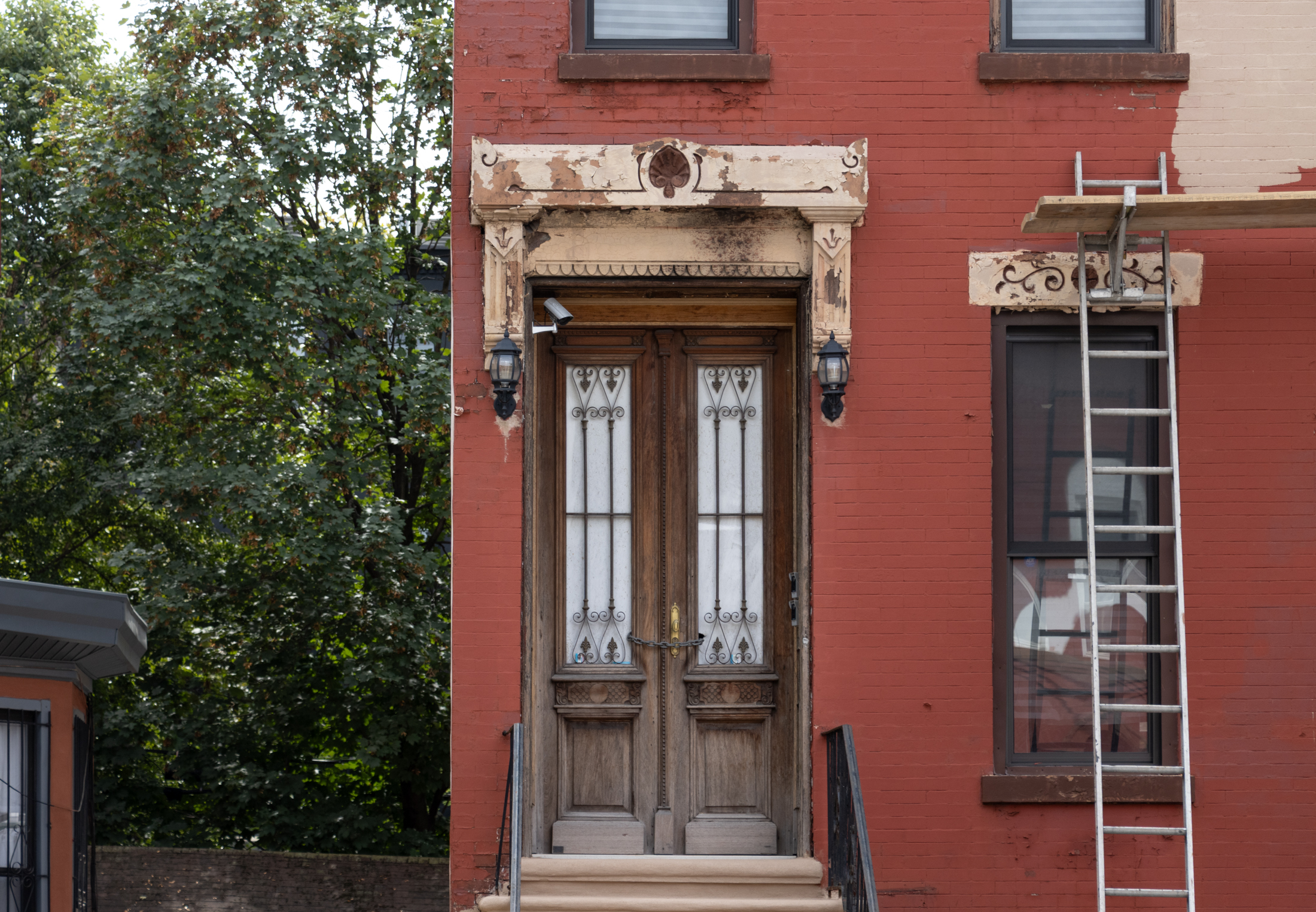Oder Does The Times
After years of (rightly) criticizing The New York Times for its failure to bring a critical eye and adequate resources to its coverage of the Atlantic Yards project, Norman Oder, publisher of the Atlantic Yards Report, got his own essay (that’s what The Times calls it; he calls it an Op-Ed) in the paper of…

 After years of (rightly) criticizing The New York Times for its failure to bring a critical eye and adequate resources to its coverage of the Atlantic Yards project, Norman Oder, publisher of the Atlantic Yards Report, got his own essay (that’s what The Times calls it; he calls it an Op-Ed) in the paper of record. A central point of the essay, and the one that he parses further in a follow-up post on his blog, is that public officials might have thought harder about handing out hundreds of millions of dollars in subsidies if they’d known that someone with unlimited financial resources–in this case Russian billionaire Mikhail Prokhorov–would end up being the beneficiary. “All was forgotten as flashbulbs popped for Prokhorov, as was the notion that had a man worth nearly $18 billion put his hand out for subsidies, someone might have called foul.” Lest the appearance of Oder’s piece on The Times give the impression that the paper has changed tack on Atlantic Yards, it’s accompanied by another criticism-free profile, this one of Ratner, in today’s sports section, the main point of which appears to be to stir up conflict between him and Madison Square Garden chief Jim Dolan.
After years of (rightly) criticizing The New York Times for its failure to bring a critical eye and adequate resources to its coverage of the Atlantic Yards project, Norman Oder, publisher of the Atlantic Yards Report, got his own essay (that’s what The Times calls it; he calls it an Op-Ed) in the paper of record. A central point of the essay, and the one that he parses further in a follow-up post on his blog, is that public officials might have thought harder about handing out hundreds of millions of dollars in subsidies if they’d known that someone with unlimited financial resources–in this case Russian billionaire Mikhail Prokhorov–would end up being the beneficiary. “All was forgotten as flashbulbs popped for Prokhorov, as was the notion that had a man worth nearly $18 billion put his hand out for subsidies, someone might have called foul.” Lest the appearance of Oder’s piece on The Times give the impression that the paper has changed tack on Atlantic Yards, it’s accompanied by another criticism-free profile, this one of Ratner, in today’s sports section, the main point of which appears to be to stir up conflict between him and Madison Square Garden chief Jim Dolan.
A Russian Billionaire, the Nets and Sweetheart Deals [NY Times]
Ratner Content to Succeed in the Shadows [NY Times]
My Time Op-Ed [Atlantic Yards Report]
Photo by gilly youner





I will admit to being confused about the interpretation that “all public-private” deals are bad. They’re not. Sometimes it’s win-win. But in this instance a couple of points to mention.
One, the scale of the public component is staggering. Between misdirected public housing funds, our largess and naming rights from Barclays, Ratner managed to do this all on our dime.
The fact that companies buy PR is a rather odd straw man. They do. But usually they use their own money to do so.
Business acumen-wise, how does a businessman take this much public money and still need a bailout? Incompetence in my book. But that’s just me.
Two, successful public-private partnerships when it comes to sports invariably enrich no one but the owner(s) of the sports franchise. Another topic I occasionally read about – history.
Benson,
The difference principal is that public dollars used for affordable housing are a public good while public dollars on this project are for the benefit of a private developer.
I get the criticisms, but the toothpaste is out of the tube. I’ll join the “just build it already” chorus.
How about this?
http://www.nytimes.com/2010/06/22/nyregion/22mta.html?ref=nyregion
I think it would be difficult to adequately summarize a project such as AY when so much is wrong with it and so precious little is right. I think Oder did an okay job. Ratner and Porokhov gamed the system and we are all poorer for it. But I don’t necessarily care which billionaire profits from this boondoggle. I do care about anti-democratic process that was allowed to ram through a taxpayer-funded project that is a veritable exhibition of poor city planning: superblocks and dead-end streets, anti-contextual design, infrastructure overload, poorly integrated parking, etc., etc.
The biggest cost of this project may be its opportunity cost to Brooklyn. A smarter, less corrupt process could have yielded a project that paid for itself yet also knitted together communities and provided a healthy mix of year-round uses and actual public space, not massive parking lots, monolithic towers and walled-in “green spaces.”
I don’t agree with the “it’s not great but we should just get on with it” sentiment. I don’t know if improving the AY plan is still a possibility, but we ought to at least keep the debate alive and try to make good public planning a priority. This city needs less Penn Station and more Grand Central, and the only way to do that is to put public officials on notice that their mistakes won’t be forgotten.
Banson – I am completely and absolutely 100% opposed to those deals if the equity comes from a rich person. Rich people are bad! If a rich person does a business deal in partnership with a public entity, it’s a welfare handout!
Obviously we need to require risk equity to come from the poor – ie those who are least able to absorb risk.
I have a question for those who claim that they oppose city subsidies to developers. Our city routinely subsidizes privately-built “affordable” housing, and Mr. B. covered the ribbon-cutting of one in Crown Heights a few days ago. Typically in these deals, the city provides the land to the developer at a price well-below the market, provides low-interest (i.e subsidized) construction loans and lucrative tax breaks. Usually the developers make out quite well in these deals.
Question: do you also oppose these deals? From the comments I see in Brownstoner, I gather that most folks don’t object. I would like to know how these deals are different than Atlantic Terminal IN PRINCIPLE.
“Not really. I’m liberal, and hardly confused about economics.”
When I read that my eyes lit up. But then I kept reading and you dashed my hopes.
“I am however sickened that our tax dollars underwrite Ratner’s business incompetence. If this is a free market, how come so much of our handout (primarily the first $50 million that was supposed to go to affordable housing) was spent on political lobbying and PR?”
The confusion is packed in here pretty tightly, so let me try to unpack it piece by piece.
1. Ratner is “incompetent” when it comes to business? He runs a very substantial business concern. Are you calling him incompetent because you don’t like the Atlantic Yards or because you are actually capable of analyzing complex business decision making in an area as difficult as public-private partnerships? Can you provide a thoughtful and objective analysis of Ratner’s skills as a business person? Would you say that his leadership and decisionmaking styles have appropriately balanced risk in on behalf of his shareholders over time? I have no idea, but since you are expert enough in this area to call Ratner “incompetent” I’m interested in your analysis.
2. I was going to go through the rest of the paragraph, but it’s just too painful. You somehow manage to cobble together the idea of a free market and the affordable housing issue lobbying and PR (as if every substantial business doesn’t have lobbying and PR costs – again, what is it that you do again?). Re-write the rest of your paragraph as a coherent series of arguments and I will respond to it.
“Wishful thinking on my part perhaps. But given the economic pain this city is going through, speaking up when people that drive quarter of a million dollar Bentleys get welfare seems the least this unconfused liberal can do.”
The deal wouldn’t happen without the public piece. It’s not “welfare”, it’s a part public part private venture. It’s a very common arrangement for projects that benefit the public and bring in tax revenue but require private money and management to get done.
“yes, this is how development is always done: give eminent domain and large amounts of subsidies and breaks to the 19th richest man in the world (who became rich through a rigged deal) so that that Russian oligarch can enjoy the benefits of the Brooklyn rigged deal.”
Brokeland – nobody else was stepping up to contribute the equity!(because the deal risky) This deal wasn’t designed *for* Prokhorov.